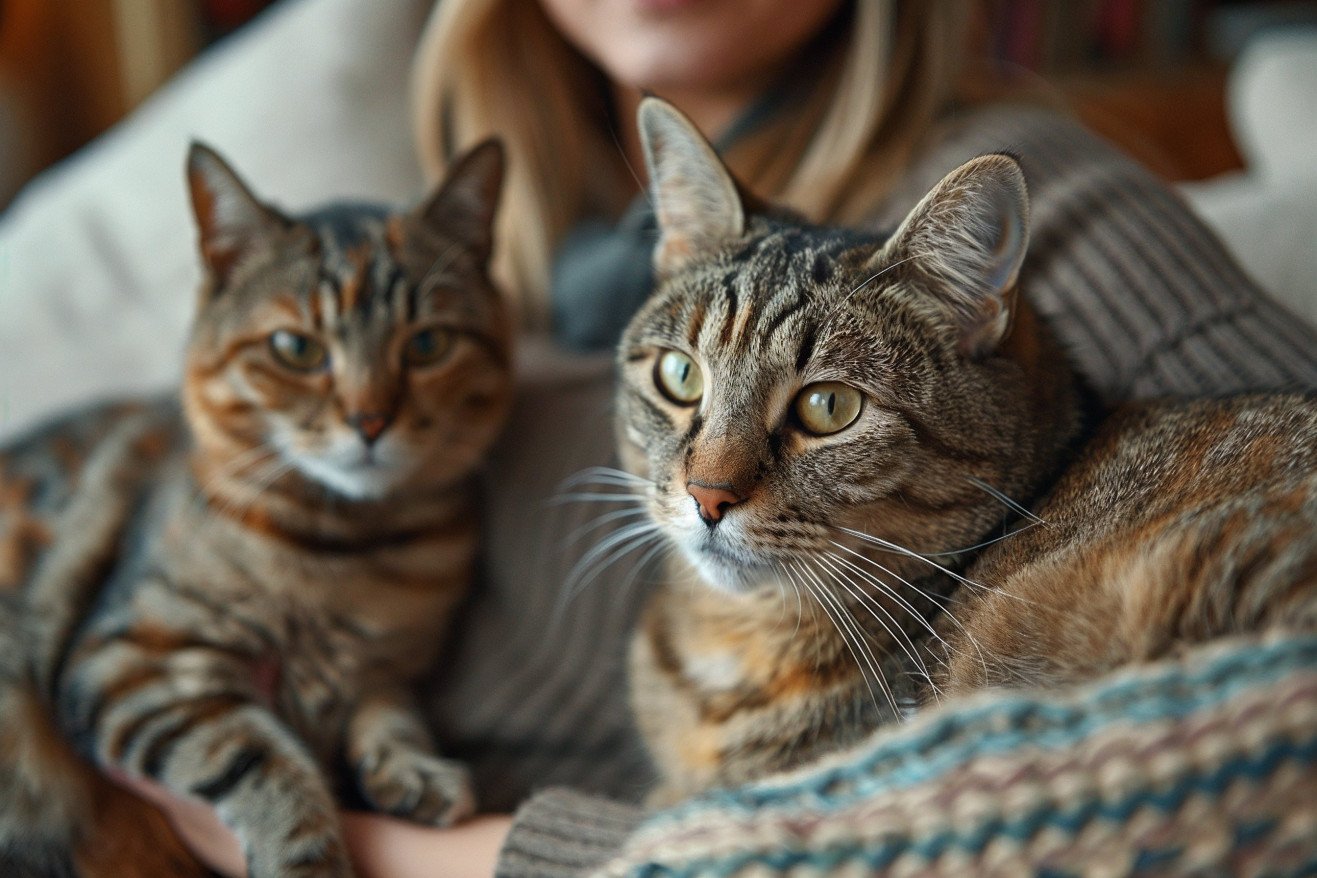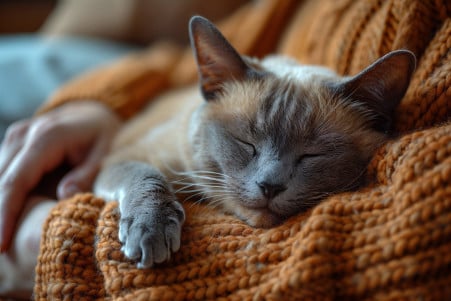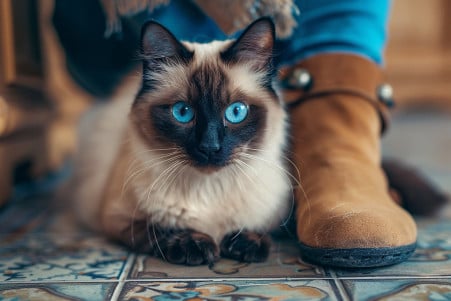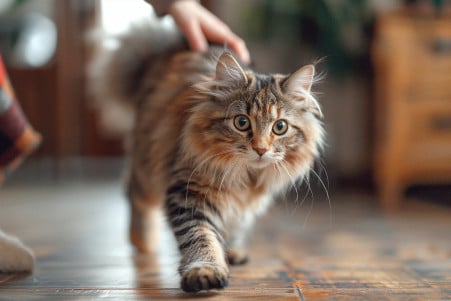Are Cats Jealous? The Science of Feline Envy
9 April 2024 • Updated 8 April 2024

Although they are often thought of as aloof and independent, if you know what to look for, cat behavior can make it clear that our furry friends are capable of feeling jealous. Cats can and do experience jealousy, particularly when they feel that their relationship with their human is being threatened by a new partner, baby, or pet. Signs of jealousy in cats include meowing more than usual, trying to disrupt the interaction with the "rival," and demanding more attention from their human.
In this article, we will explore the scientific evidence provided by animal behaviorists and psychologists to help explain the origins of jealousy in cats. By looking at research on feline social structures, the evolution of the domestic cat, and the way cats form attachments, we hope to give you a better understanding of your cat's emotional life. This, in turn, can help you build a stronger bond with your cat and give you insight into how to deal with jealousy in a way that is both sensitive and effective.
Are Cats Jealous?
How to Tell If Your Cat Is Jealous
Learning to recognize jealous behaviors in cats is important because it can help you address the underlying issues. Some of the most common signs of jealousy in cats are aggressive behaviors like hissing, swatting, growling, or even biting. Other signs of jealousy in cats are stress-related behaviors like hiding, overgrooming, or urinating or defecating outside the litter box.
Jealousy in cats can also manifest as destructive behaviors, such as knocking over food dishes or making a mess in the litter box. In addition, a cat that is feeling jealous may also become distant, avoid eye contact, or refuse to interact with their owner in ways that are typical for them.
Learning to recognize these common signs of jealousy is important because it can help you address the root cause of the problem before it gets worse. Cats often use these behaviors to control their environment when they feel threatened or insecure, so addressing jealousy early on can help prevent further stress and conflict. By learning to recognize the signs of jealousy in cats, you can work to help your pet feel more secure and improve your relationship with them.
What Causes Jealousy in Cats?
The roots of cats' jealous behaviors can be traced back to their natural instincts to compete for resources and protect their territory. According to PetMD, cats can experience jealousy and stress when their security is threatened due to changes in their environment, like the addition of new people or pets in the home, which can threaten their resources and status.
Inadequate socialization and a lack of personal space in multi-cat households can also lead to jealousy, according to Catster. Cats are territorial animals, and when they don't have enough space and resources to call their own, they can feel insecure and defensive.
Jealousy can also be triggered by health issues that limit a cat's access to certain areas or activities, which can make them feel like they're losing control over their environment. As Rover.com points out, even outdoor cats can experience jealousy-like emotions if they feel like other cats are invading their territory.
Recognizing the root causes of a cat's jealous behaviors, including resource guarding and the need for security, can help pet parents address these issues effectively. Armed with this information, pet parents can work to create a safe, stimulating environment that meets their cat's needs and prevents jealousy from becoming a recurring problem.
How to Deal With Jealousy in Multi-Cat Households
When you have more than one cat, you can help prevent jealousy by making sure each cat gets individual attention and has access to their own resources. Pettsie explains that it's important to make sure each cat has their own territory and personal space because cats are territorial animals. This can mean moving the new cat's food to a different location, giving the jealous cat their own perch, or making sure the cat's favorite toys are kept separate from the other cats.
You can also help prevent jealousy by slowly introducing new pets or family members and using positive reinforcement. Petful suggests that you can help prevent jealousy by giving the jealous cat treats, praise, and attention when the new pet or family member is around so they learn to associate the new addition with good things. It's also important to stick to a routine and make sure each cat gets one-on-one time with their human.
If your cat is showing signs of jealousy that lead to aggression or anxiety, it's important to talk to a vet or animal behaviorist to get professional help. With the right interventions and time, pet parents can help their cats live together in harmony and work through any jealousy that comes up.
Dealing With Jealousy in Single-Cat Homes
In single-cat homes, jealousy can be a reaction to changes in the owner's schedule or attention. Per DailyPaws, cats can experience jealousy and stress when they feel their territory is threatened by changes like new people or pets in the home.
To avoid jealousy in single-cat homes, make sure to spend quality time with your cat and keep a consistent schedule. Experts also suggest providing environmental enrichment, like toys and scratching posts, to keep your cat mentally stimulated and active. When it comes to new people or pets, make sure to introduce them slowly and positively.
If your cat's jealousy leads to more serious problems, PetMD recommends seeking help from a veterinarian or animal behaviorist. However, with the right techniques and a little patience, pet parents can make sure that they and their cat have a happy and healthy relationship, even if they live in a single-cat home.
Conclusion: How to Strengthen Your Relationship With Your Cat
Learning how to deal with jealousy in cats can help you improve your relationship with your pet. It's important to understand the reasons behind jealousy, such as territoriality and resource guarding, in order to deal with it effectively.
You can also take steps to avoid jealousy in the first place, such as providing a stable environment, giving your cats individual attention, and making sure they have their own resources. If your cats' jealousy issues are severe, you may need to consult a vet or a cat behaviorist. However, with time and effort, you can learn to live in harmony with your cat.


